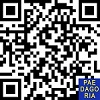UNDERSTANDING STUDENT PROBLEM-SOLVING PROCESSES IN PHYSICS: FOCUS ON GLOBAL WARMING TOPICS
Abstract
Keywords
Full Text:
PDFReferences
A Suryansyah, S., Kastolani, W., & Somantri, L. (2021). Scientific thinking skills in solving global warming problems. IOP Conference Series: Earth and Environmental Science, 683(1). https://doi.org/10.1088/1755 1315/683/1/012025
Annam, S., Susilawati, S., & Ayub, S. (2020). Pengaruh Model Pembelajaran Poe (Predict-Observe-Explain) Terhadap Kemampuan Pemecahan Masalah Fisika Sma Ditinjau Dari Sikap Ilmiah Peserta Didik. Jurnal Ilmiah Profesi Pendidikan, 5(1), 35–42. https://doi.org/10.29303/jipp.v5i1.104
Arnellis, Fauzan, A., Arnawa, I. M., & Yerizon. (2021). Analysis of High Order Thinking Skill of Students in Contextual Problems Solving. Journal of Physics: Conference Series, 1742(1). https://doi.org/10.1088/1742-6596/1742/1/012021
Astuti, A. W., Mindyarto, B. N., Aji, M. P., Astuti, B., & Atun, C. (2024). Application of the Global Warming Learning System (GWLS) as an Effort to Improve Student’s Learning Outcomes and Critical Thinking Ability. Physics Communication, 8(1), 30–37. https://doi.org/10.15294/physcomm.v8i1.44920
Ayudha, C. F. H., & Setyarsih, W. (2021). Studi Literatur : Analisis Praktik Pembelajaran Fisika Di Sma Untuk Melatih Keterampilan Pemecahan Masalah. Jurnal Pendidikan Fisika Undiksha, 11(1), 16. https://doi.org/10.23887/jjpf.v11i1.33427
Azhari, Simanjuntak, D., Hakim, L., & Sabar. (2022). Design and control system of temperature and water level in hydroponic plants. Journal of Physics: Conference Series, 2193(1). https://doi.org/10.1088/1742-6596/2193/1/012018
Cahyaningsih, U., Pangestika, R. R., Mumpuni, A., & Prasetyo, T. (2023). The Mathematical Problem-Solving Processes Of Primary Students. International Journal of Advance Research in Mathematics Education, 1(1), 1–9.
Collins, S. P., Storrow, A., Liu, D., Jenkins, C. A., Miller, K. F., Kampe, C., & Butler, J. (2021). No Title 済無No Title No Title No Title. 167–186.
DrShivaraj Gadigeppa Gurikar. (2016). Global Warming and the Role of Physics in its Reduction-An Empirical Study. International Journal of Research and Analytical Reviews, 3(3), 361–371. www.ijrar.org361
Erlinawati, E., & Muslimah, M. (2021). Test Validity and Reliability in Learning Evaluation. Bulletin of Community Engagement, 1(1), 26. https://doi.org/10.51278/bce.v1i1.96
Gousopoulos, D. (2023). Investigating students’ scientific reasoning through heuristic and analytical thought processes. https://arxiv.org/abs/2311.07158v1
Heller, P., Keith, R., & Anderson, S. (1992). Teaching problem solving through cooperative grouping. Part 1: Group versus individual problem solving. American Journal of Physics, 60(7), 627–636. https://doi.org/10.1119/1.17117
Llaha, O., & Aliu, A. (2023). Students’ performance evaluation in higher education using data visualization techniques. Philosophy, Social and Human Disciplines, 2(2022). https://www.researchgate.net/publication/370427469_Students’_performance_evaluation_in_higher_education_using_data_visualization_techniques
Meliyanti, A., Wilujeng, I., & Kuswanto, H. (2024). Profile of Problem-Solving Ability for High School Students: Context of Using PBL-Based Physics Learning Media on Global Warming. Jurnal Penelitian Pendidikan IPA, 10(11), 8996–9002. https://doi.org/10.29303/jppipa.v10i11.6007
Nico Pradana, L. (2024). Problem-solving Strategy: Mathematical Problem-solving Model Within the Polya’ Framework. KnE Social Sciences, 2024, 728–740. https://doi.org/10.18502/kss.v9i6.15327
Nurhasan Ropi’i, Sunyoto Eko Nugroho, & Ellianawati, E. (2025). Analysis of Physics Problem Solving Skills of Junior High School Students through PBL-HOTS on Magnetism Material. Physics Communication, 9(1), 27–39. https://doi.org/10.15294/pc.v9i1.1821
Nurlita, A. D., Suwarma, I. R., Aminudin, A., & Indonesia, U. P. (2025). Journal la edusci. 06(03), 475–487. https://doi.org/10.37899/journallaedusci.v6i3.2460
Park, M. (2020). Students’ problem-solving strategies in qualitative physics questions in a simulation-based formative assessment. Disciplinary and Interdisciplinary Science Education Research, 2(1), 1–13. https://doi.org/10.1186/s43031-019-0019-4
Pauzi, R. Y., & Windiaryani, S. (2021). The critical thinking skills on global warming issue: Effect of the socio-scientific problems approach on problem-solving toward student’s. Biosfer, 14(2), 228–237. https://doi.org/10.21009/biosferjpb.19963
Pristianti, M. C., & Prahani, B. K. (2022). Profile of Students’ Physics Problem Solving Skills and Problem Based Learning Implementation Supported by Website on Gas Kinetic Theory. Jurnal Pendidikan Progresif, 12(1), 375–393. https://doi.org/10.23960/jpp.v12.i1.202229
Rahman, A. A., & Nasryah, C. E. (2020). Efektivitas Model Pembelajaran Missouri Mathematics Project untuk Meningkatkan Hasil Belajar Siswa SMA. Mosharafa: Jurnal Pendidikan Matematika, 9(2), 335–346. https://doi.org/10.31980/mosharafa.v9i2.650
Ronzon, T., Gurria, P., Carus, M., Cingiz, K., El-Meligi, A., Hark, N., Iost, S., M’barek, R., Philippidis, G., van Leeuwen, M., Wesseler, J., Medina-Lozano, I., Grimplet, J., Díaz, A., Tejedor-Calvo, E., Marco, P., Fischer, M., Creydt, M., Sánchez-Hernández, E., … Miras Ávalos, J. M. (2025). No 主観的健康感を中心とした在宅高齢者における 健康関連指標に関する共分散構造分析Title. Sustainability (Switzerland), 11(1), 1–14. https://pubmed.ncbi.nlm.nih.gov/28459981/%0Ahttps://doi.org/10.1016/j.resenv.2025.100208%0Ahttp://scioteca.caf.com/bitstream/handle/123456789/1091/RED2017-Eng-8ene.pdf?sequence=12&isAllowed=y%0Ahttp://dx.doi.org/10.1016/j.regsciurbeco.2008.06.005%0Ahttps:
Rosen, D., & Kelly, A. M. (2023). Mixed methods study of student participation and self-efficacy in remote asynchronous undergraduate physics laboratories: contributors, lurkers, and outsiders. International Journal of STEM Education, 10(1). https://doi.org/10.1186/s40594-023-00428-5
Safitri, I., Sinaga, P., & Suhendi, E. (2022). Problem-Based Learning Integrated Reading and Writing in Work and Energy Phenomena: Its Effectiveness on Problem-Solving Skills and Reading-Writing Literacy. Jurnal Ilmiah Pendidikan Fisika Al-Biruni, 11(2), 219–230. https://doi.org/10.24042/jipfalbiruni.v11i2.13833
Setyarini, D. A., Imam Supardi, Z. A., & Elok Sudibyo. (2021). Improving Senior High School Students’ Physics Problem-solving Skills Through Investigated Based Multiple Representation (IBMR) Learning Model. IJORER : International Journal of Recent Educational Research, 2(1), 42–53. https://doi.org/10.46245/ijorer.v2i1.74
Sinaga, B., Sitorus, J., & Situmeang, T. (2023). The influence of students’ problem-solving understanding and results of students’ mathematics learning. Frontiers in Education, 8(February), 1–9. https://doi.org/10.3389/feduc.2023.1088556
Skills, C. (2025). Analisis Kebutuhan Pengembangan E-LKPD Pemanasan global Terintegrasi Etnosains dan Model PBL untuk Memfasilitasi Kemampuan Pengetahuan dan Keterampilan Berkomunikasi Siswa. 3(2), 56–67. https://doi.org/10.11594/timeinphys.2025.v3i2p56-67
Sugiyono. (2020). Metode penelitian kuantitatif, kualitatif, R&D (Issue January).
Wahyuni, T., Syutaridho, S., & Efriani, A. (2023). Pengaruh Penerapan Model PBL Terhadap Kemampuan Pemecahan Masalah Siswa di Sekolah Menengah. Edumatica : Jurnal Pendidikan Matematika, 13(03), 247–257. https://doi.org/10.22437/edumatica.v13i03.28953
Wang, Y., Wang, S., & Hong, X. Bin. (2022). Road Extraction using High Resolution Satellite Images based on Receptive Field and Improved Deeplabv3+. Journal of Physics: Conference Series, 2320(1). https://doi.org/10.1088/1742-6596/2320/1/012021
Wildbichler, S., Haagen-Schützenhöfer, C., & Schubatzky, T. (2025). Students’ ideas about the scientific underpinnings of climate change: a systematic review of the literature. Studies in Science Education, 61(1), 117–169. https://doi.org/10.1080/03057267.2024.2395206
Wulandari, D., Hariyono, E., Suprapto, N., Hidaayatullaah, H. N., & Prahani, B. K. (2021). Profile of students’ creative thinking skills on global warming material: Gender perspective in physics learning. Journal of Physics: Conference Series, 2110(1). https://doi.org/10.1088/1742-6596/2110/1/012028
Wulandari, N. O., Sutrio, Doyan, A., & Rahayau, S. (2024). The Influence of Project Based Learning Model on Creative Thinking Skills and Physics Learning Outcomes. Jurnal Penelitian Pendidikan IPA, 10(12), 10660–10669. https://doi.org/10.29303/jppipa.v10i12.9738
Yamin, M., Aulia, V., & Novita, D. (2024). Problem-based Learning Pedagogy in Writing Research Proposal. Jurnal Pendidikan Bahasa Inggris Undiksha, 12(2), 222–229. https://doi.org/10.23887/jpbi.v12i2.80520
Zhang, Z. (2022). A Mixed Methods Design for Assessing Physics Learning in the Online Learning Environment. Journal of Education and Development, 6(2), 1. https://doi.org/10.20849/jed.v6i2.1142
DOI: https://doi.org/10.31764/paedagoria.v16i4.31997
Refbacks
- There are currently no refbacks.
Copyright (c) 2025 Masda Pandiangan, Klara Wahyu Isyra, Nurul Fitriyah Sulaeman, Agung Rahmadani

This work is licensed under a Creative Commons Attribution-ShareAlike 4.0 International License.
Paedagoria : Jurnal Kajian, Penelitian dan Pengembangan Kependidikan
Fakultas Keguruan & Ilmu Pendidikan | Universitas Muhammadiyah Mataram.
_______________________________________________
 | Paedagoria : Jurnal Kajian, Penelitian dan Pengembangan Kependidikan |
______________________________________________
CURRENT INDEXING:
EDITORIAL OFFICE:


















